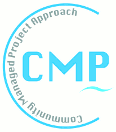CMP trainings completed in Tigray and SNNPR regions
The Community-led Accelerated WaSH in Ethiopia (COWASH) project organized trainings in the two regions that are starting to implement the Community Managed Project (CMP) approach in their selected woredas this year. In Tigray, both CMP woredas, Ofla and Enda Mohoni, have planned to construct 20 water schemes each. In the SNNPR, Chencha and Arbaminch Zuria woredas both aim at 23 water schemes respectively.
The CMP trainings in Tigray and SNNPR took place in January and February and lasted for 8 days. Altogether 98 WaSH professionals (out of which 9 were female) participated in the CMP management, CMP appraisal and M&E trainings. The objective of the training package was to build the capacity of the regional, zonal and woreda WaSH teams, experts, administrators, office heads and CMP Regional Support Unit on the CMP management, technical issues and monitoring & evaluation so that they will be qualified to carry out the CMP implementation successfully.
In order to measure the learning results, a pre-training test was given to all participants in the beginning of the training. At the end, a post-training test was organized and the results were presented to the participants. The participants found this practise of documenting the learning outcomes very exciting and rewarding.
As a result of the training, the regional, zonal and woreda WaSH teams are now able to know what the CMP approach actually is, how the promotion, application preparation and appraisals function and how the sites for water schemes are selected and investigated. Moreover, through innovative group work based on a case study the officials were able to understand and practise how to use the CMP manuals effectively. The woreda officials now feel confident about giving the required assistance down to the kebele level. Moreover, all the participants captured well the different M&E concepts and COWASH monitoring tools. As a conclusion, the participants expressed that they are very happy by the fact that the CMP approach has started in their region.

